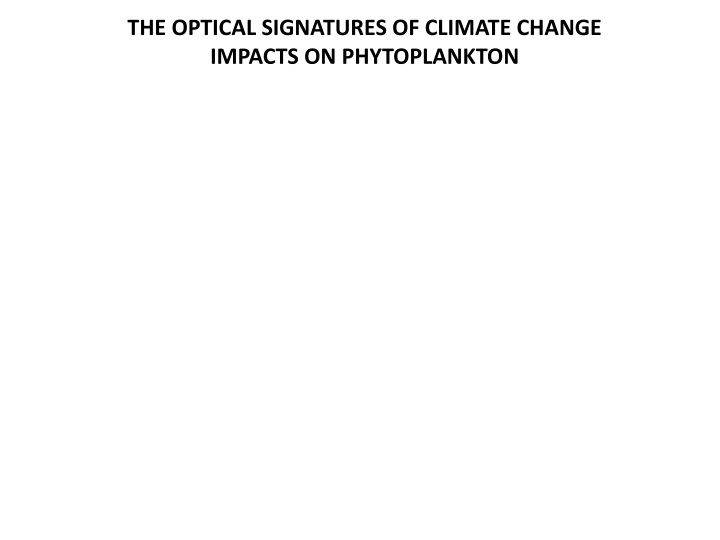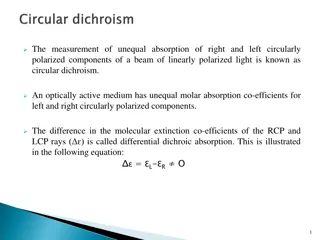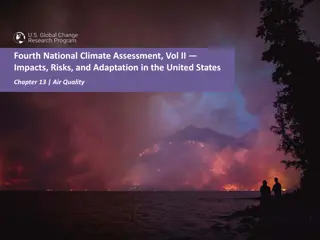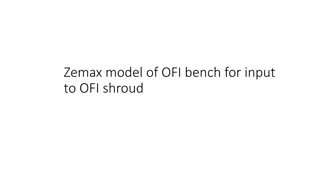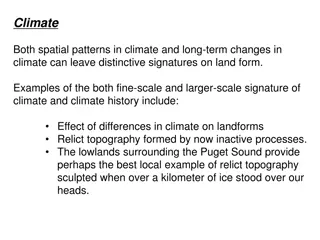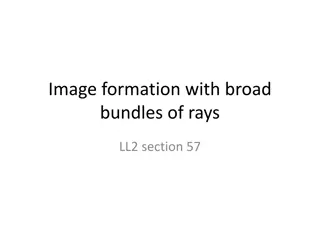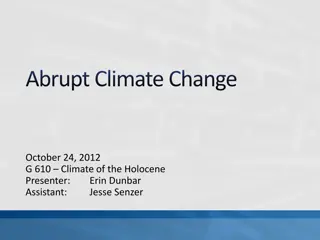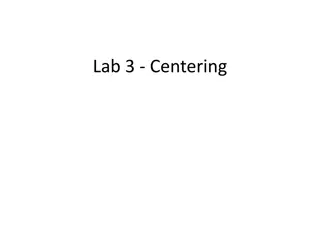Optical Signatures of Climate Change Impacts on Phytoplankton
Explore the optical signatures of climate change impacts on phytoplankton through images showing differences in primary production, reflectance ratios, community changes, and trends in various oceanic regions. The data visualizations provide insights into the effects of climate change on phytoplankton communities and offer a glimpse into potential future scenarios.
Download Presentation

Please find below an Image/Link to download the presentation.
The content on the website is provided AS IS for your information and personal use only. It may not be sold, licensed, or shared on other websites without obtaining consent from the author.If you encounter any issues during the download, it is possible that the publisher has removed the file from their server.
You are allowed to download the files provided on this website for personal or commercial use, subject to the condition that they are used lawfully. All files are the property of their respective owners.
The content on the website is provided AS IS for your information and personal use only. It may not be sold, licensed, or shared on other websites without obtaining consent from the author.
E N D
Presentation Transcript
THE OPTICAL SIGNATURES OF CLIMATE CHANGE IMPACTS ON PHYTOPLANKTON
2000 Difference (2100-2000) 7 2 6 1 5 3 4 5 year averages
Amount of pre-industrial community still in any location in year 2100 (1=all community still there, 0=none of community there) New community can have invaded so does not imply decrease in biomass Fk is biomass of each phytoplankton type 5 year averages
2000 Difference (2100-2000) 5 year averages
Difference (2100-2000) 5 year averages
THE OPTICAL SIGNATURES OF CLIMATE CHANGE IMPACTS ON PHYTOPLANKTON Difference in Primary Production (2100-2000) N Atlantic S Ocean 425/550 450/550 475/550 Difference in Ratio of Reflectance (R(425)/R(550) (2100-2000) N Atlantic S Ocean 5 year averages
Fraction of 2000 community remaining in 2100 N Atlantic S Ocean 425/550 450/550 475/550 Difference in Ratio of Reflectance (R(425)/R(550) (2100-2000) N Atlantic S Ocean 5 year averages
N Atlantic 425 475 500 550 600 425/550 450/550 475/550 TRANSIENT RUN: BUSINESS AS USUAL CONTROL: PRE-INDUSTRIAL monthly averages
S Ocean 425 475 500 550 600 425/550 450/550 475/550 TRANSIENT RUN: BUSINESS AS USUAL CONTROL: PRE-INDUSTRIAL monthly averages
Question: - Are there optical signatures of community changes? - How to determine trend statistically : especially for non-linear changes? - Which regions have trends even in the control run?
